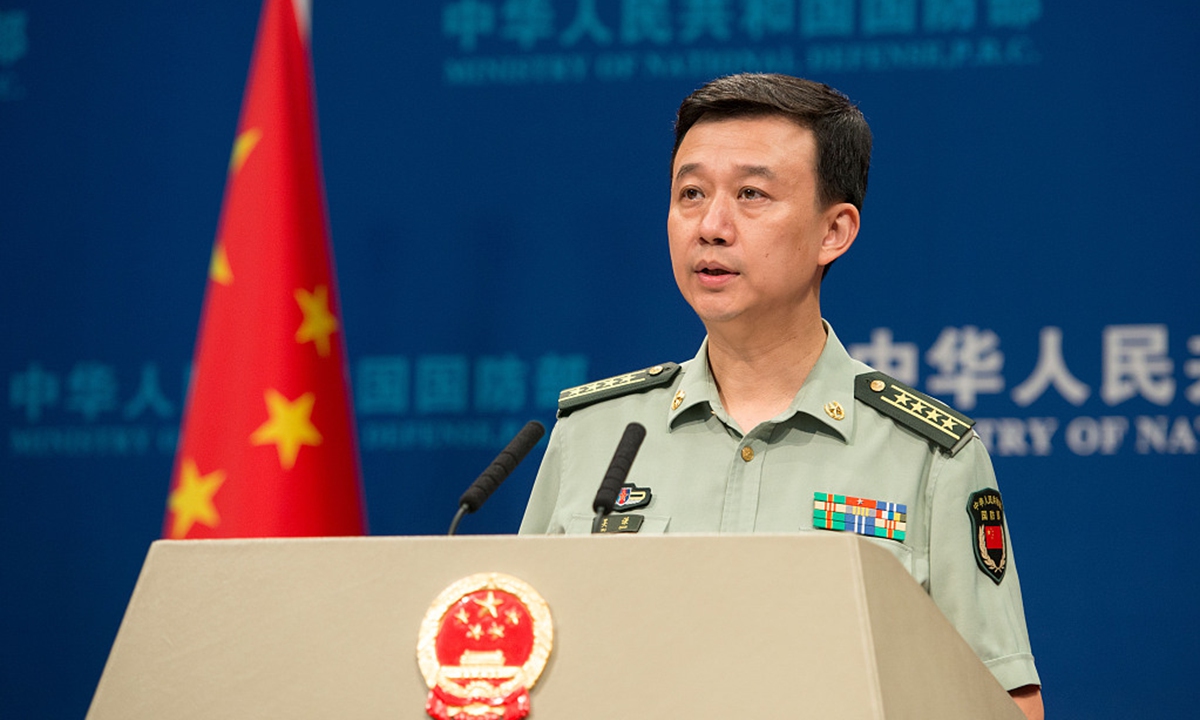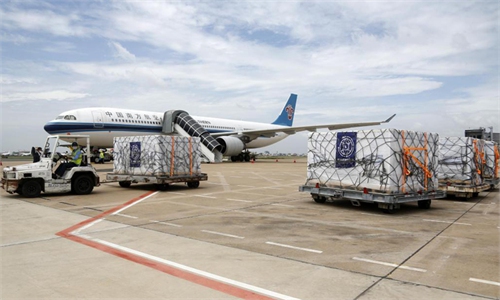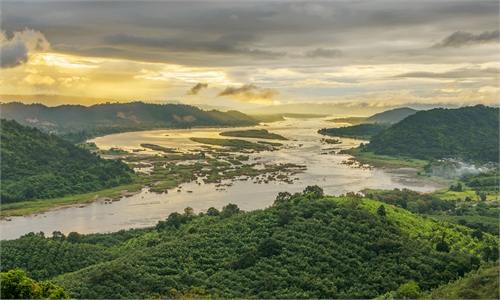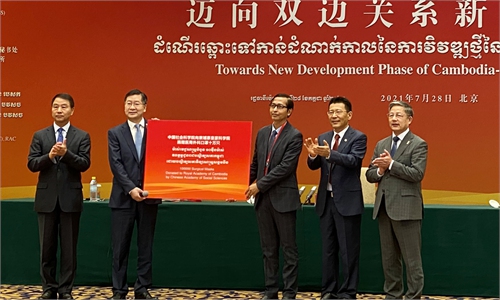Chinese military spokesperson describes China-Cambodia friendship as 'steel-like' for 1st time

Wu Qian File photo; CFP
Wu Qian, spokesperson of China's Ministry of National Defense, for the first time used "steel-like Cambodia" to describe the China-Cambodia friendship during a press conference on Thursday. Wu said that Chinese and Cambodian armed forces are good brothers and good friends who help each other.
The reference, which indicates the China-Cambodia relationship is as strong as steel, has been circulating online among some Chinese netizens for some time. In terms of military exchanges, the ministry in February revealed the first two recipients of the Chinese military's COVID-19 vaccines, Pakistan and Cambodia. It means that not only "iron Pakistan," but also "steel-like Cambodia" are China's ironclad friends.
Steel-like Cambodia is worthy of the name, which, as to military exchanges, can be demonstrated by two firsts. According to Wu, the Golden Dragon 2020 China-Cambodia joint training was successfully held in Cambodia in March last year. This was the only live-fire exercise conducted by the Chinese military with foreign troops during the COVID-19 pandemic last year and is a reflection of the high-level cooperation between the two militaries. In June, the two countries' armed forces held the first video seminar focusing on defense white papers, marking the debut of the Chinese military's exchange on defense white papers with a foreign counterpart.
The two militaries maintained close exchanges despite the COVID-19 epidemic as high-level officials on both sides continued to communicate with each other via video link, phone calls and letters.
Wu noted that the Chinese government and military sent medical expert teams to Cambodia and provided anti-epidemic materials and vaccines in multiple batches and the Cambodian side also offered anti-epidemic material assistance to China at the beginning of the COVID-19 outbreak in China last year, which fully reflects the sincere friendship between the two countries and the two militaries in helping and supporting each other.
General Vong Pisen, commander-in-chief of the Royal Cambodian Armed Forces, said that since the outbreak of the epidemic, it was the People's Liberation Army of China that sent the first military medical expert team to Cambodia and supported them with numerous batches of anti-epidemic facilities and vaccines, which played a key role in helping the Cambodian military to quickly put the epidemic under control.
Pisen stressed that the two parties, countries and armed forces have supported and helped each other in core interest and major concerns, setting a typical example for cooperation of parties, countries and armed forces around the world.
The steel-like friendship between China and Cambodia, which is a member of the Association of Southeast Asian Nations, has stimulated the nerves of some countries so that they had been deliberately stirring up trouble in recent years to try to destabilize the friendship between China and Cambodia, Wu noted.
A Reuters report on July 22 cited groundless accusations from the US Department of Justice that Chinese hackers stole Mekong River data from the Cambodian foreign ministry.
The Chinese Embassy in Cambodia refuted the report immediately. The report had obvious factual and logical loopholes, and was completely based on fabrications made by the US, the embassy said. It also disproved the report's claim that the Chinese Embassy in Cambodia did not respond to Reuters' comment requests.
At the opening ceremony of the second Cambodia-China Think Tank High-level Forum in Beijing, Cambodia's Standing Deputy Prime Minister Bin Chhin spoke highly of the China-Cambodian relationship. He said that bilateral relations have reached an unprecedented height.
At the online forum, officials and academics said that the two countries would work together to tackle global issues, opposed zero-sum game and Cold War thinking and will not allow certain groups to force other countries to take sides. The two sides will enhance coordination in regional and global wefforts to fight against the pandemic and oppose nationalism or any political manipulation over the virus origins tracing.



